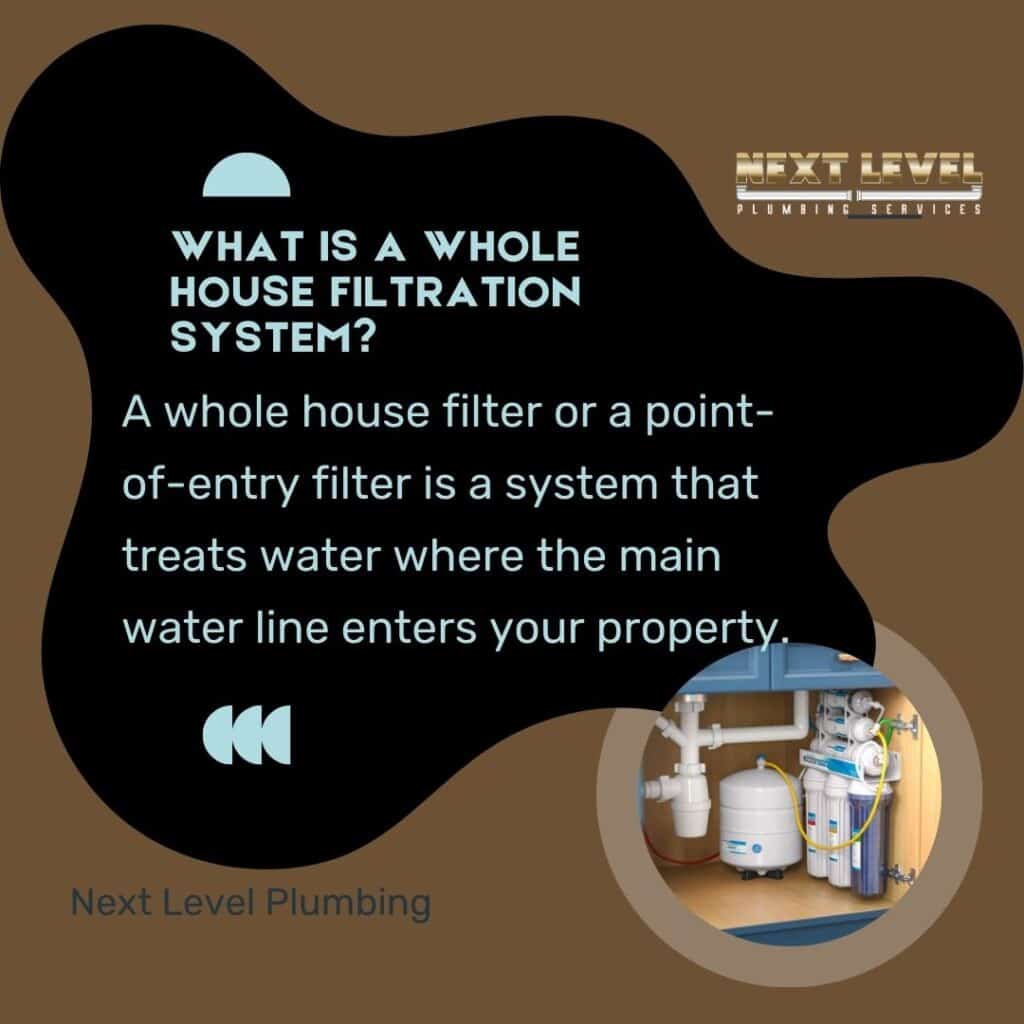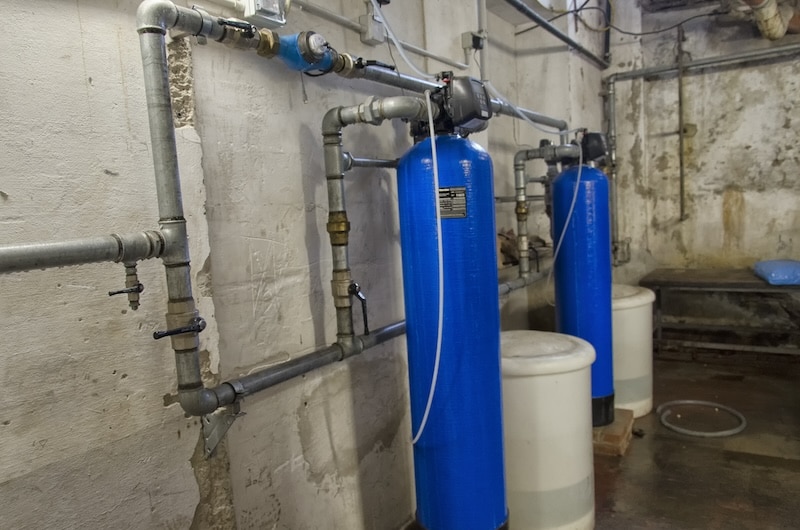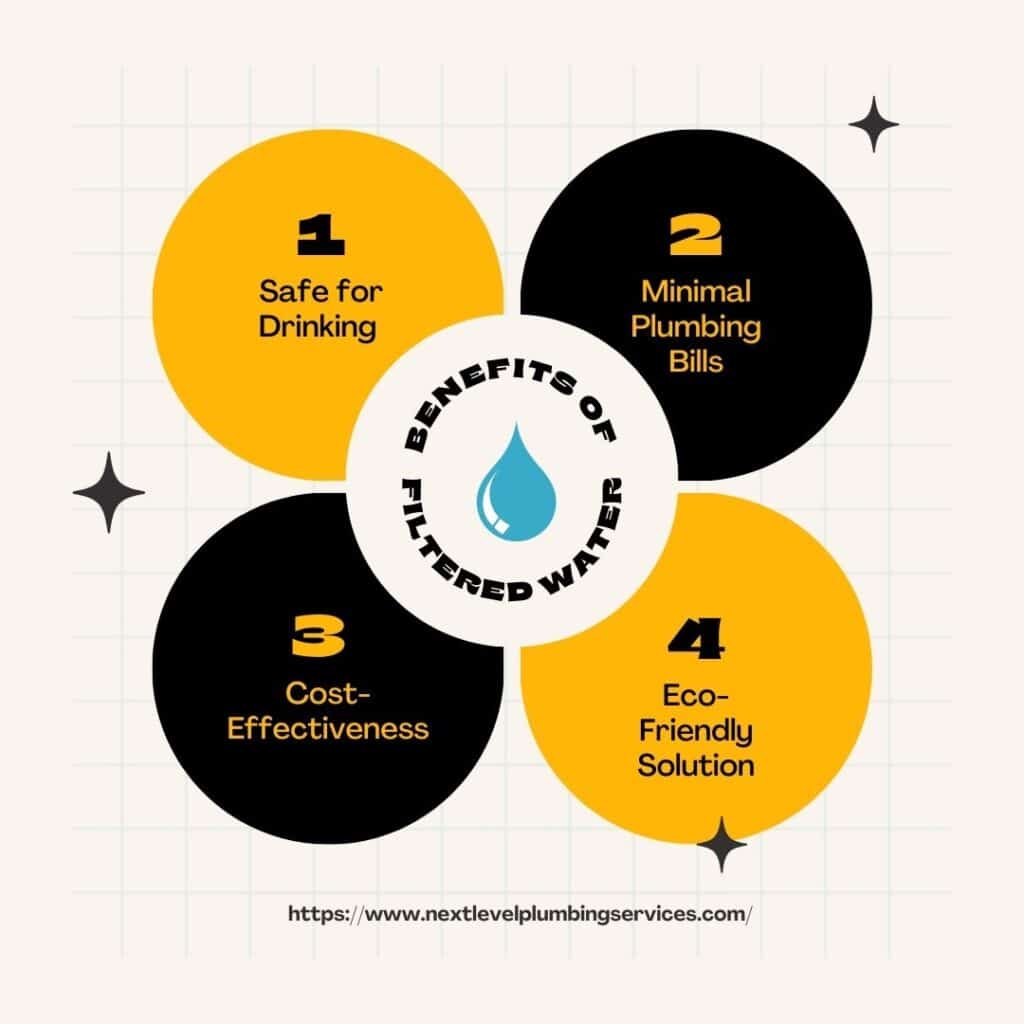A whole-house water filter can save you a lot of money and time, availing clean water for your household around the clock. Picture this – no more microplastic and hard water concerns, freshwater availability from every facet of your home, and thousands of dollars saved. It is quite a sweet deal. Here is an exhaustive explainer of why you should consider it.

What Are the Types of Water Filtration Systems?
Several types of whole-house filtration systems exist. The filtration system ideal for your property depends on the contaminants in your clean water. There are specific filtration systems for eliminating organic chemicals, sediments, organic matter, and water acidity.
Water Softeners

If your area has hard water from dissolved minerals, the water softener filtration effectively removes high salt concentrations in water. Hard water is characteristic of potable water in the Bay Area and many places in the US. You may have noticed scales on your appliances or showerheads.
Unfortunately, the scales decrease the service life of your appliances and water pipes, resulting in frequent repairs and replacements. The mineral build-up also fades and stiffens your laundry, accelerates scum accumulation, and can cause severe skin irritation due to increased dryness.
Water softeners have porous, negatively charged ions, which reduce the concentration of dissolved minerals through deionization. The average lifespan of a water softener system is 15 years.
Sediment Filters
A sediment filter is ideal for homes with dirt, sand, clay, or rust flakes in the water system. Sediments can gradually build up in your freshwater pipeline, causing blockages, decreasing water pressure, and interfering with the functioning of your appliances. The accumulated slurry can also be a breeding ground for microorganisms.
The filter uses a mechanical technique to block particulate matter from entering your main line without interfering with the water flow. Sediment filters protect your water pipeline from impurities, preventing costly replacements and potential hazards from spreading in your home.
Ultraviolet Purification Systems
Water contaminated with microorganisms is common in properties using wells as the source, especially in the rural agricultural Bay Area. The ultra-purification system is also effective when the government passes a boiling water advisory.
The filtration system uses ultraviolet light to destroy 99% of pathogens in water. Its efficiency increases when it works in tandem with the sediment filtration system, which is often called the first line of defense in the filtration system.
Carbon Filters
The function of carbon filters is to eliminate chlorine from water. Municipal governments use chloramines, a chlorine derivative, to treat water before distributing it for use. While the water is safe for consumption, it may reek and taste of chlorine, making it repulsive. Carbon filters contain activated catalytic carbon filled with pores, which capture organics and chemicals through adsorption.
Acid Neutralizer Filtration Systems
If the water in your municipality is acidic, an acid neutralizer can keep its pH neutral. Acidic water can cast blue-green stains and corrode your pipes and appliances. The acidity also weakens your pipeline over time, causing leakages over time.
Water acidity is a common problem for people using wells with shallow groundwater as their primary source of clean water. The acidity occurs when the water absorbs carbon dioxide. Acid neutralizer systems use calcite, an alkaline mineral, to neutralize acidic water.
- Book a Water Filter Installer Now
- (650)532-4866
What Are the Benefits of Filtered Water?

Safe for Drinking
A whole-house filtration system supplies your home with usable water free from impurities. You can safely use the water to cook, brush your teeth, make coffee, and drink because the system removes harmful chemicals, microbes, and sediments.
Minimal Plumbing Bills
Filtered water is unproblematic to your plumbing line, reducing the need for frequent repairs and replacements. It does not contain biohazards from accumulating soil residues. The filtration system also captures corrosive chemicals, eliminating odor and scale accumulation.
Cost-Effectiveness
With a functioning whole-house filtration system, there will be no need to buy or depend on bottled water. The filtration system can save you up to $700 annually. The filtration system protects your entire portable water pipeline and conduits, reducing contamination risk significantly.
Eco-Friendly Solution
Plastic bottled water is a menace to the environment. Over 500 billion of these plastic bottles are in use every year. Only 35% get recycled. The rest end up in landfills and eventually in the ecosystem as microplastics. The filtration system reduces over-reliance on bottled water significantly by making water safe to drink from the faucet.
- Book a Water Filter Installer Now
- (650)532-4866
How Do I Know Which Filtration System to Install?
The water in your municipality determines the filtration system required. If your area has hard water with high calcium or magnesium salt concentration, the water softener filtration system will eliminate the problem. Your water could be hard and ridden with sediments. The sediment and water softener systems can enhance water safety in this case.
Leverage the expertise of your local professional plumber. They know the water composition of the area and the perfect filtration solution.
How Efficient Are Whole House Filters?
The filtration system has three distinct parts. The pre-filter stage contains large particles such as sediments and silts. Water then flows to the main stage, which filters impurities based on the filter’s function. For instance, the ultraviolet purification system will have UV light sterilize water molecules by killing living organisms. The system also has a post-filter stage to remove any particulate matter that may have escaped the previous levels of filtration.
- Book a Water Filter Installer Now
- (650)532-4866
How Do I Know If My Portable Water System Needs a Filtration System?
Water always leaves signs when it is contaminated. Signs that you may need a filter include:
- Scales on your showerhead, faucets, and appliances
- A white, chalky cast on your utensils
- Foul smells coming from faucets
- Rust, stain, or corrosion on your pipes and faucet
- Colored water coming from your faucets.
- Funny water taste
- Sediments or slurry at the bottom of your containers after fetching water
- Water-borne diseases in the members of your household
Remember, impurities like lead, arsenic, nitrates, and perfluorooctane sulfonic acid (PFOS) can be challenging to detect. A filtration system is the only effective way to prevent contamination.
Partner With Next Level Plumbing Services For Your Whole House Filter Install
At Next Level Plumbing Services, we provide cost-effective, professional, and top-notch installation and maintenance services for whole-house filter systems. We are familiar with the municipal water characteristics and the potable water system of the Bay Area and leverage our local knowledge to benefit our clients. Call us today to request a quote.

